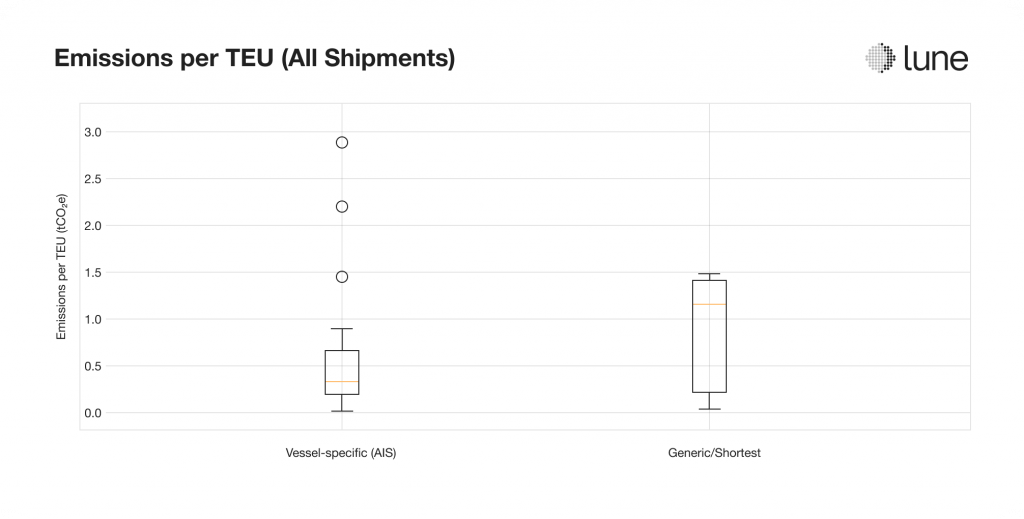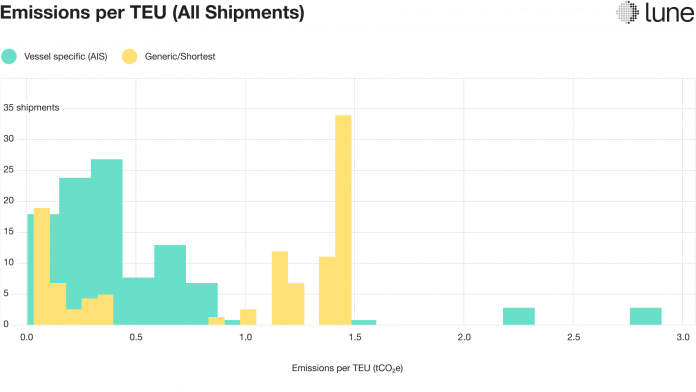Logistics emissions are being significantly overestimated due to reliance on generic calculation methods, according to new analysis from emissions intelligence company Lune.
The company reviewed over 100 real-world shipments using vessel-specific emissions factors and satellite-tracked distances. It then compared them to results generated using standard industry inputs: a “generic container ship” emissions factor derived from industry averages and shortest feasible route. The standard method, commonly used to meet reporting requirements, overestimated emissions by an average of 86% — the equivalent of 0.42 tCO₂e per TEU (Twenty-Foot Equivalent Unit).
In extreme cases, discrepancies reached +1.24 tCO₂e per TEU, especially when route diversions were unaccounted for. The ongoing Red Sea crisis is a clear example: ships rerouted around Africa are travelling an additional 4,300 km, a detail industry-standard models overlook.
Lune’s analysis also found that using generic emissions factors alone inflated emissions by an average of 0.47 tCO₂e per TEU, with major implications for businesses exposed to future carbon pricing. At current EU ETS rates (~€70/tonne), that could mean €30 (~£26) of overestimated liability per TEU.
“Shippers increasingly expect accurate emissions data from their logistics partners,” said Erik Stadigh, co-founder and CEO of Lune. “No company wants to share inaccurate data, but when fundamental inputs like real distances aren’t accessible, it’s a systemic risk.”
While standard methods may suffice for compliance under the EU CSRD, Stadigh argues they fall short for companies trying to cut emissions meaningfully. This is driving demand for more precise, scalable data to support operational and sustainability goals.

To close the gap, Lune has introduced emissions intelligence, a software that uses AI and advanced technologies to automate shipment-level emissions estimates using real data without the need for complex, manual inputs.

The shift comes as over 80 logistics companies, including CEVA Logistics and JAS Worldwide, have committed to net-zero targets through the Science Based Targets initiative (SBTi), reflecting broader moves in the sector toward actionable decarbonisation.
Lune has published an in-depth analysis which explores the findings in more detail and outlines emerging approaches to emissions data in logistics.




